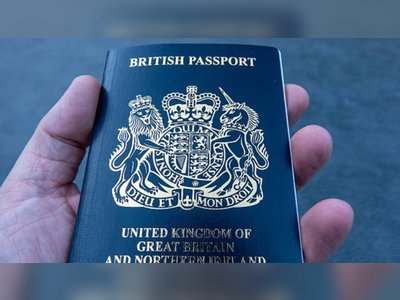Saudi Arabia's Surge in Executions of Foreigners in 2024
Over 100 foreigners executed amid escalating death penalty practices
As of 2024, Saudi Arabia has executed more than 100 foreigners, according to an AFP tally, marking a stark increase that rights organizations call unprecedented.
The latest execution, reported by the Saudi Press Agency, occurred in the southwestern region of Najran where a Yemeni national was put to death for drug smuggling.
This year's tally represents a nearly threefold increase compared to the 34 foreigners executed in both 2023 and 2022.
The European-Saudi Organisation for Human Rights states that this scale of foreigner executions in a single year is unprecedented.
Saudi Arabia, long criticized for its heavy use of the death penalty, executed 274 people in 2024 according to AFP, following a record of executions in 2023 where it ranked third globally after China and Iran, based on Amnesty International's data.
A significant driver of this increase has been the end of a three-year moratorium on executions for drug offenses, contributing to 92 drug-related executions this year, 69 of those being foreigners.
Nationalities of the executed foreigners range from Pakistan, Yemen, Syria, Nigeria, Egypt, Jordan, Ethiopia, to individuals from Sudan, India, Afghanistan, Sri Lanka, Eritrea, and the Philippines.
Rights groups argue that foreign defendants often face more challenges in receiving fair trials in the kingdom, citing barriers like limited access to court documents.
Taha al-Hajji from ESOHR claims these foreigners are highly vulnerable to exploitation and wrongful convictions.
The increasing executions cast a shadow over statements made by Crown Prince Mohammed bin Salman in 2022, suggesting a reduction of the death penalty to murder and threats to multiple lives.
Despite these claims, the overall rate of executions shows no sign of abating, and activists remain concerned as families of those on death row remain anxious that their relatives could be next.
Jeed Basyouni of the NGO Reprieve warns of an ongoing 'execution crisis' within the country.
The latest execution, reported by the Saudi Press Agency, occurred in the southwestern region of Najran where a Yemeni national was put to death for drug smuggling.
This year's tally represents a nearly threefold increase compared to the 34 foreigners executed in both 2023 and 2022.
The European-Saudi Organisation for Human Rights states that this scale of foreigner executions in a single year is unprecedented.
Saudi Arabia, long criticized for its heavy use of the death penalty, executed 274 people in 2024 according to AFP, following a record of executions in 2023 where it ranked third globally after China and Iran, based on Amnesty International's data.
A significant driver of this increase has been the end of a three-year moratorium on executions for drug offenses, contributing to 92 drug-related executions this year, 69 of those being foreigners.
Nationalities of the executed foreigners range from Pakistan, Yemen, Syria, Nigeria, Egypt, Jordan, Ethiopia, to individuals from Sudan, India, Afghanistan, Sri Lanka, Eritrea, and the Philippines.
Rights groups argue that foreign defendants often face more challenges in receiving fair trials in the kingdom, citing barriers like limited access to court documents.
Taha al-Hajji from ESOHR claims these foreigners are highly vulnerable to exploitation and wrongful convictions.
The increasing executions cast a shadow over statements made by Crown Prince Mohammed bin Salman in 2022, suggesting a reduction of the death penalty to murder and threats to multiple lives.
Despite these claims, the overall rate of executions shows no sign of abating, and activists remain concerned as families of those on death row remain anxious that their relatives could be next.
Jeed Basyouni of the NGO Reprieve warns of an ongoing 'execution crisis' within the country.










